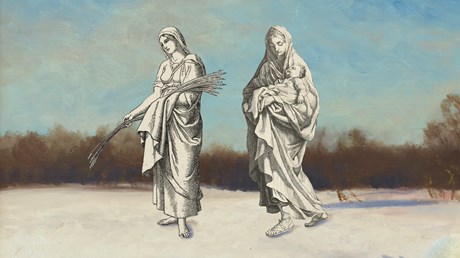The book of Ruth’s narrative reminds us that God’s salvation is not simply accomplished through “heroic” men, but that women, too, play a vital role.

I grew up in Japan in a household where my mother was a follower of Jesus but my father was not a believer. My mother took my siblings and me to church each week and played a central role in my faith formation. Consequently, I recall her presence in most of my Christmas memories, such as attending Christmas Eve worship services, acting in Nativity plays, and sharing about Jesus and the “meaning” of Christmas with others. Within my family, my mother was the primary figure who modeled Christ, and she has played an indispensable role in fostering my faith.
Many Christians may resonate with my story, especially those who grew up in a family where the mother was the sole parent who followed Jesus. Indeed, a 2019 Barna study of Christian homes in the United States points to the prominent role of mothers in their children’s faith. Teens consistently identified mothers as the foremost figures who pray with them and talk with them about matters relating to the Bible and faith. “Over and over, this study speaks to the enduring impact of mothers—in conversation, companionship, discipline and, importantly, spiritual development,” researcher Alyce Youngblood concluded. For many believers, belief in Jesus would not have been a reality without the role and legacy of family matriarchs in their lives.
The Advent season provides an opportunity to meditate on Christ’s love, but it also gives us a chance to appreciate his maternal lineage, particularly of his great-ancestor Ruth. I propose that the story of Ruth serves as an Old Testament Advent story. For Christians, Advent carries a specific connotation of “the coming of Christ at the Incarnation.” But the term also broadly means “the ...
from Christianity Today Magazine
Umn ministry


.gif)

.gif)
.gif)
